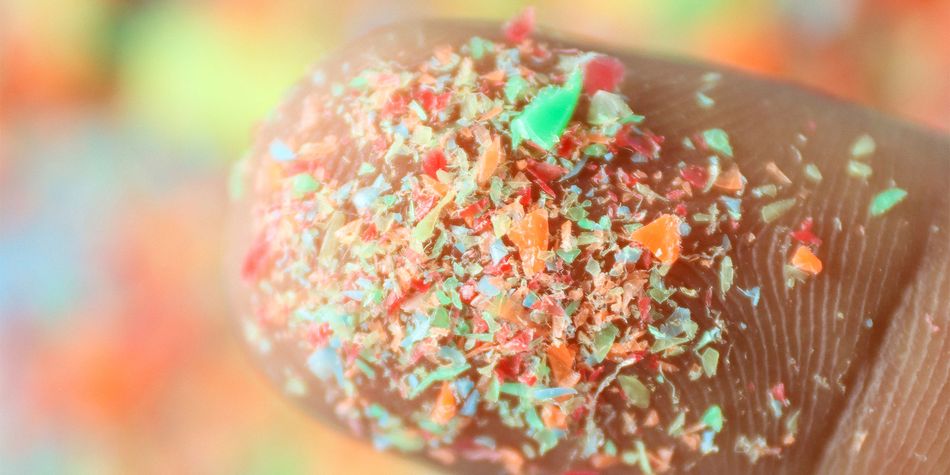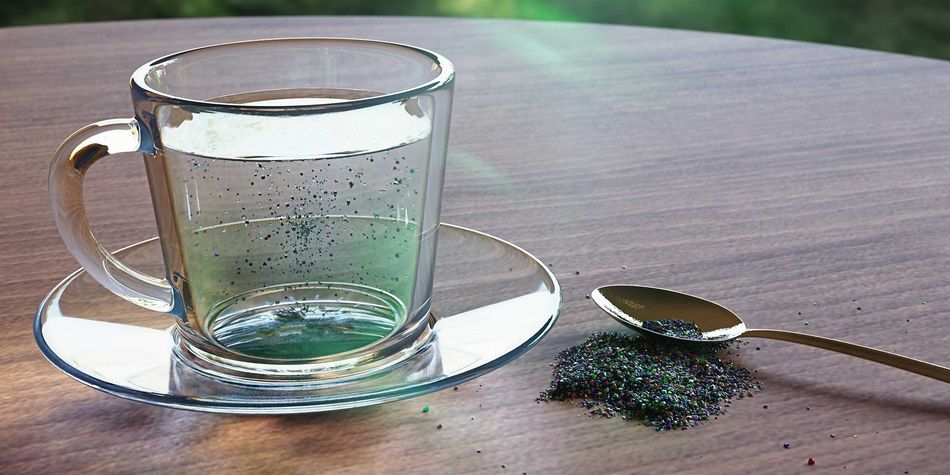By clicking a retailer link you consent to third-party cookies that track your onward journey. This enables W? to receive an affiliate commission if you make a purchase, which supports our mission to be the UK's consumer champion.
Ditch the plastic: 7 sustainable swaps for you and the planet
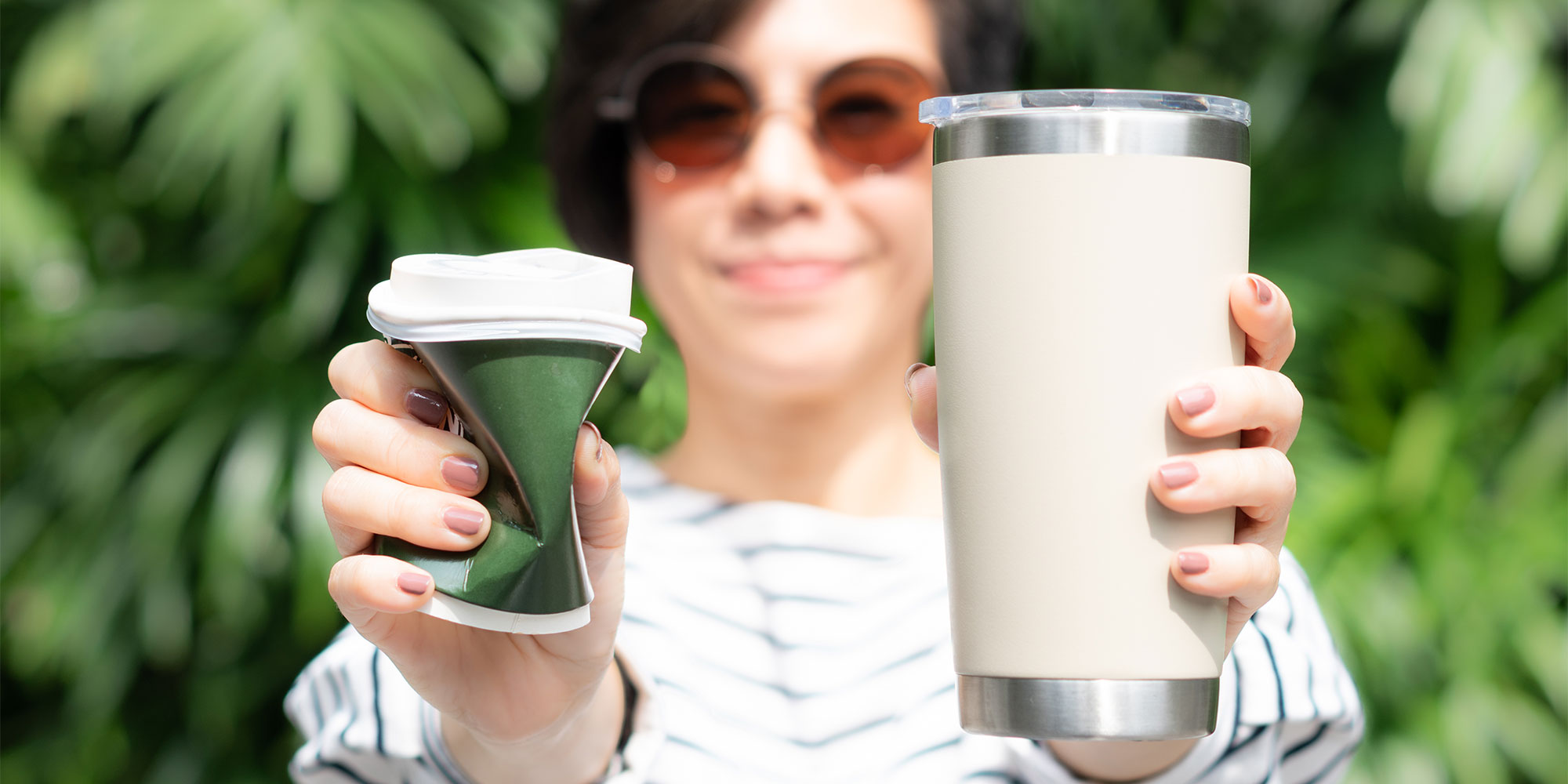
Plastic has become so embedded in our lives that avoiding it entirely is almost impossible. From chopping boards and cookware to tea bags and T-shirts, many everyday items we rely on contain hidden plastics that contribute to waste, pollution and microplastic build-up in the environment.
While it's not always possible to be totally plastic-free, swapping them for longer-lasting, natural or reusable alternatives doesn’t have to be expensive or complicated, and often brings extra benefits such as better product performance or fewer chemicals.
Below, we highlight practical ways to lower your plastic footprint around the home and suggest some sustainable swaps to make the change easier.
Should we be worried about microplastics? We look at the potential effects of microplastics on your health and the environment
1. Swap plastic for wooden chopping boards
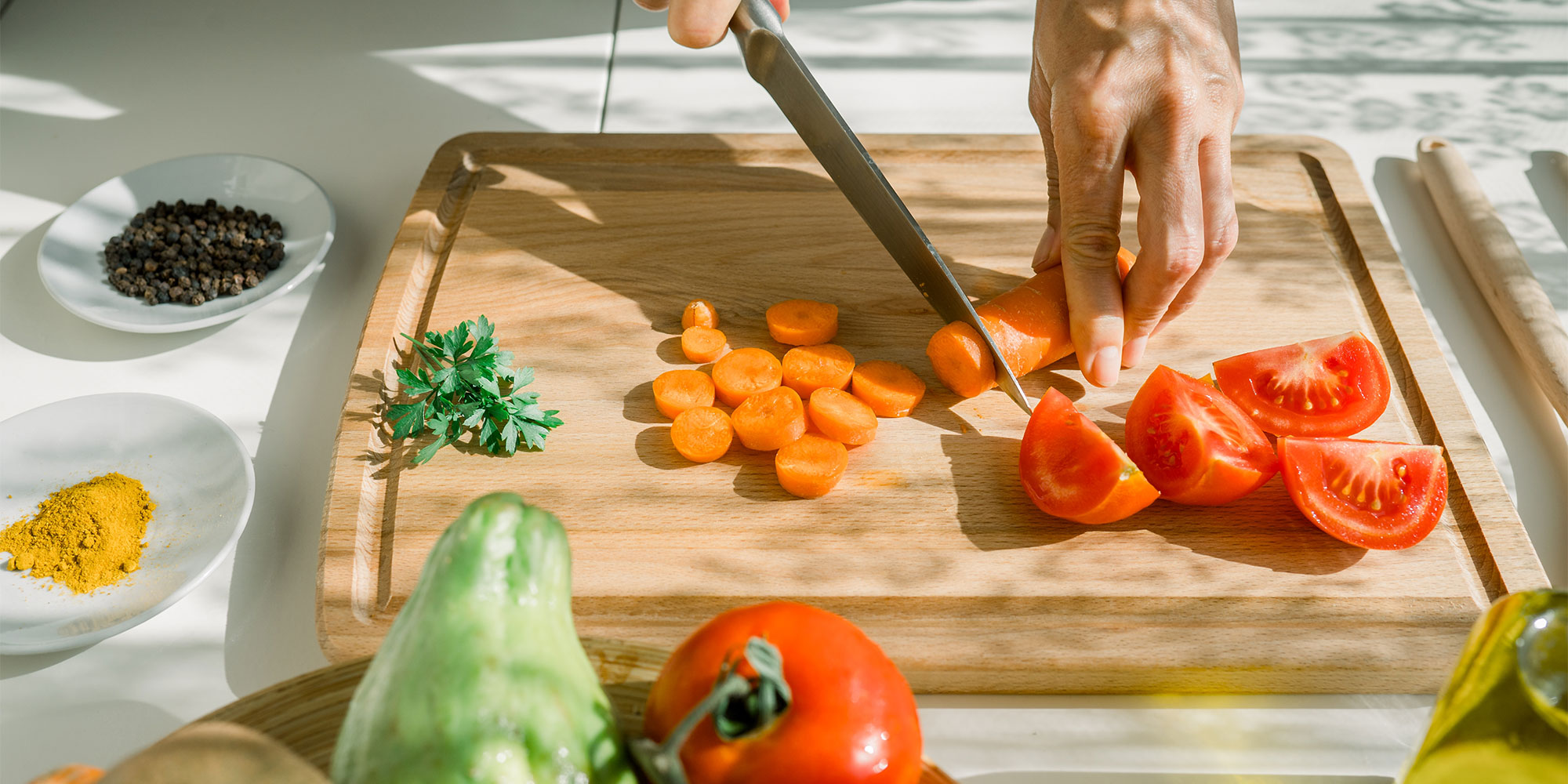
Plastic chopping boards may seem convenient but, over time, they can scar and release tiny plastic particles into your food when you chop on them.
A wooden chopping board is a durable, plastic-free alternative, though you will need to oil and maintain them regularly to keep them in good condition.
Ideally, choose one made from FSC-certified wood. This certification from the Forest Stewardship Council ensures the wood comes from responsibly managed forests that meet strict environmental, social and economic standards.
You can usually find this information in the online product description or on the packaging.
Popular FSC-certified wooden chopping boards to consider
- Ziruma Non Toxic Chopping Board - SQUIRREL_TEXT_50022656
- John Lewis X Deliciously Ella Large Chopping Board - Available from John Lewis (£45)
We've looked at bamboo, wood fibre and oak options to uncover the best wooden chopping boards
2. Swap non-stick for stainless steel pans
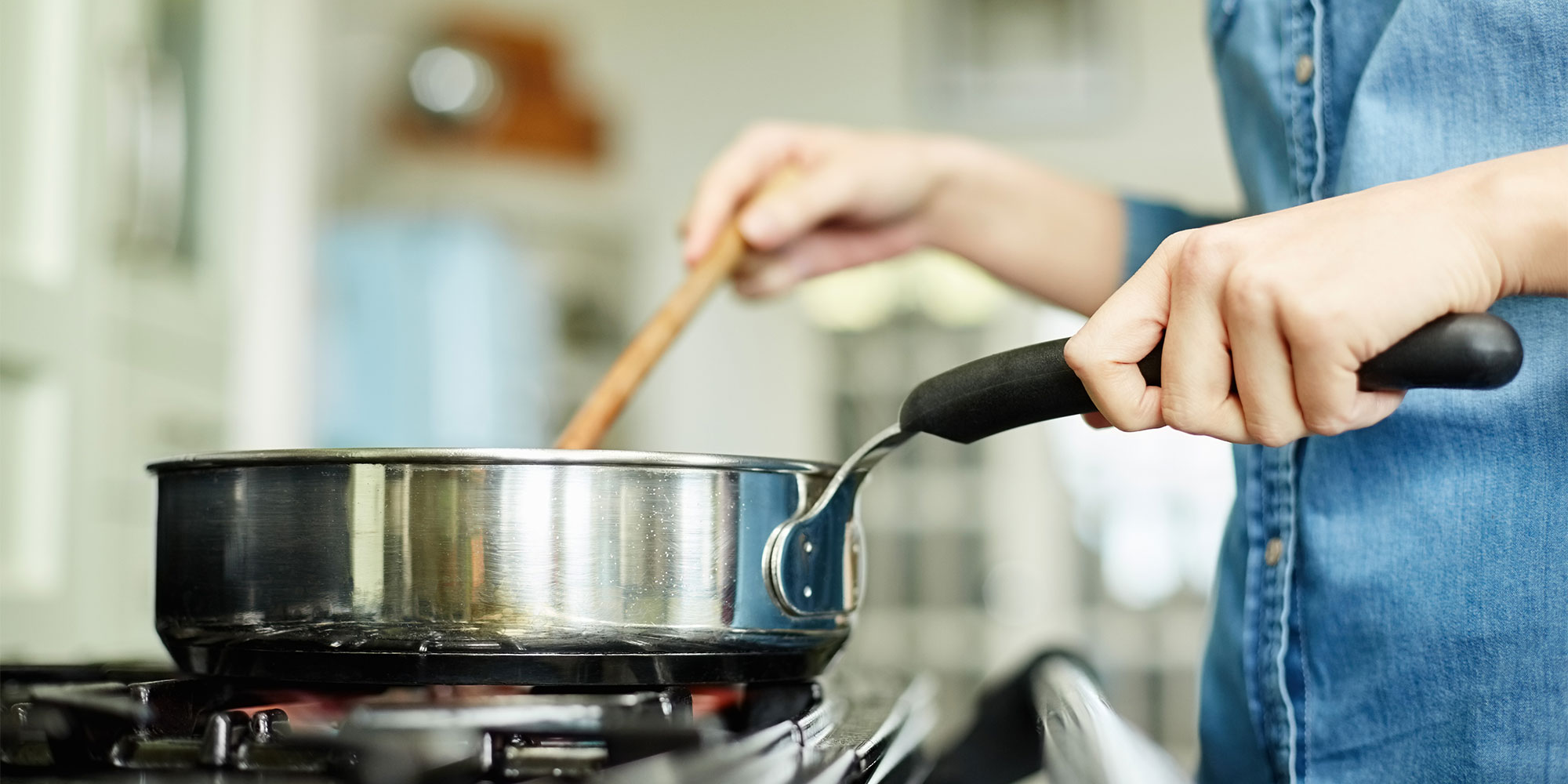
Non-stick pans contain plastic coatings and PFAS (also known as 'forever chemicals' as they can persist in our bodies and the environment for a very long time). You can learn more about the health concerns around PFAS and PFOAs in our guide.
Stainless steel pans are typically free of PFAS by design, though some options will still contain some plastic, such as in the handle or knobs for thermal insulation. To make the swap fully plastic-free, look for all-metal handles.
Popular stainless steel pans to consider
- Tefal Ingenio Emotion 4-piece Stainless Steel Pan Set* - Available from Argos (£75)
- ProCook Professional Bi-Ply Frying Pan Set - Available from ProCook (£100)
- ProCook Professional Stainless Steel Frying Pan Set - Available from ProCook (£100)
* Contains plastic elements.
Despite the plastic-free benefits, some people find stainless steel tricky to cook with. We've tested to find the best non-stick pans
3. Swap plastic for glass containers
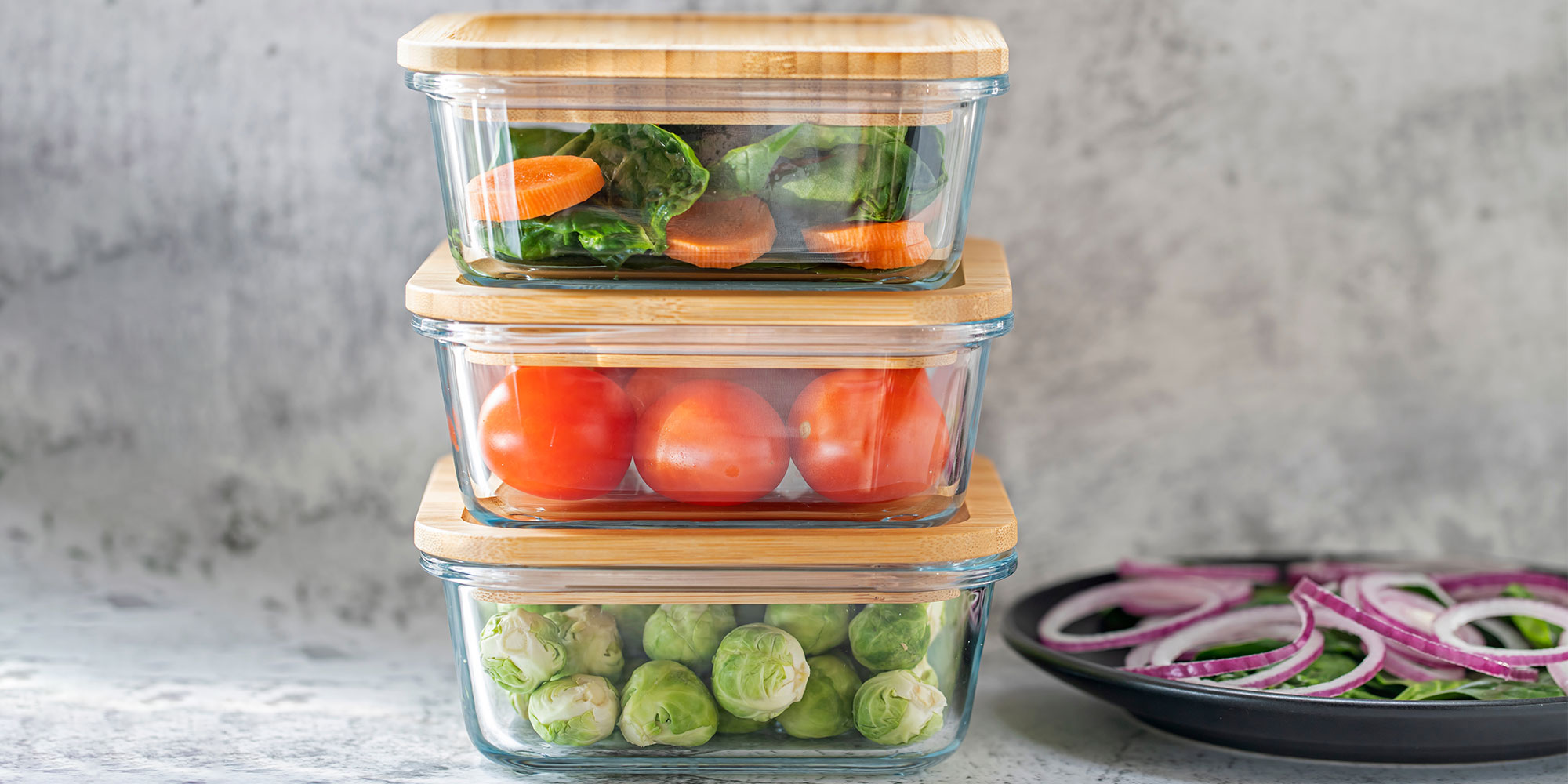
Plastic food storage containers can absorb odours and stains. And over time, they can degrade, potentially leaching additives or microplastics - especially when heated, scratched or used with acidic foods.
When plastic is heated, such as putting plastic containers in the microwave, it can cause the release of microplastics and other additives, even when the product is advertised as microwave-safe.
An emerging area of research suggests that heat or UV exposure can cause microplastics to break down into even smaller particles, known as oligomers, which are even easier for the body to absorb, and therefore potentially more toxic.
Continuous exposure to high heat can lead to plastic degradation over time, and to the release of microplastics that are known to have harmful environmental effects and possible detrimental effects on human health.
Ditch the plastic Tupperware for glass containers instead. Glass will be heavier and can break if dropped, but it doesn't leach synthetic materials, and most can be used to safely reheat food.
Note that it's hard to find a completely glass option, as the lids will need to have some form of silicone or plastic to create a secure seal when locked shut.
Popular glass containers to consider
- John Lewis Airtight Leak-Proof Glass Storage Container (1-litre)* - Available from John Lewis (£7.50)
- John Lewis Glass Storage Container, Set of 3, 1.7L** - Available from John Lewis (£21)
- ProCook Lock & Fresh Airtight Glass Storage Dish (6x350ml)* - Available from ProCook (£29)
* Comes with a plastic lid. Food should not be reheated with the plastic lid on the container.
** Not suitable for reheating food. Use purely for storage purposes.
4. Swap plastic for reusable water bottles
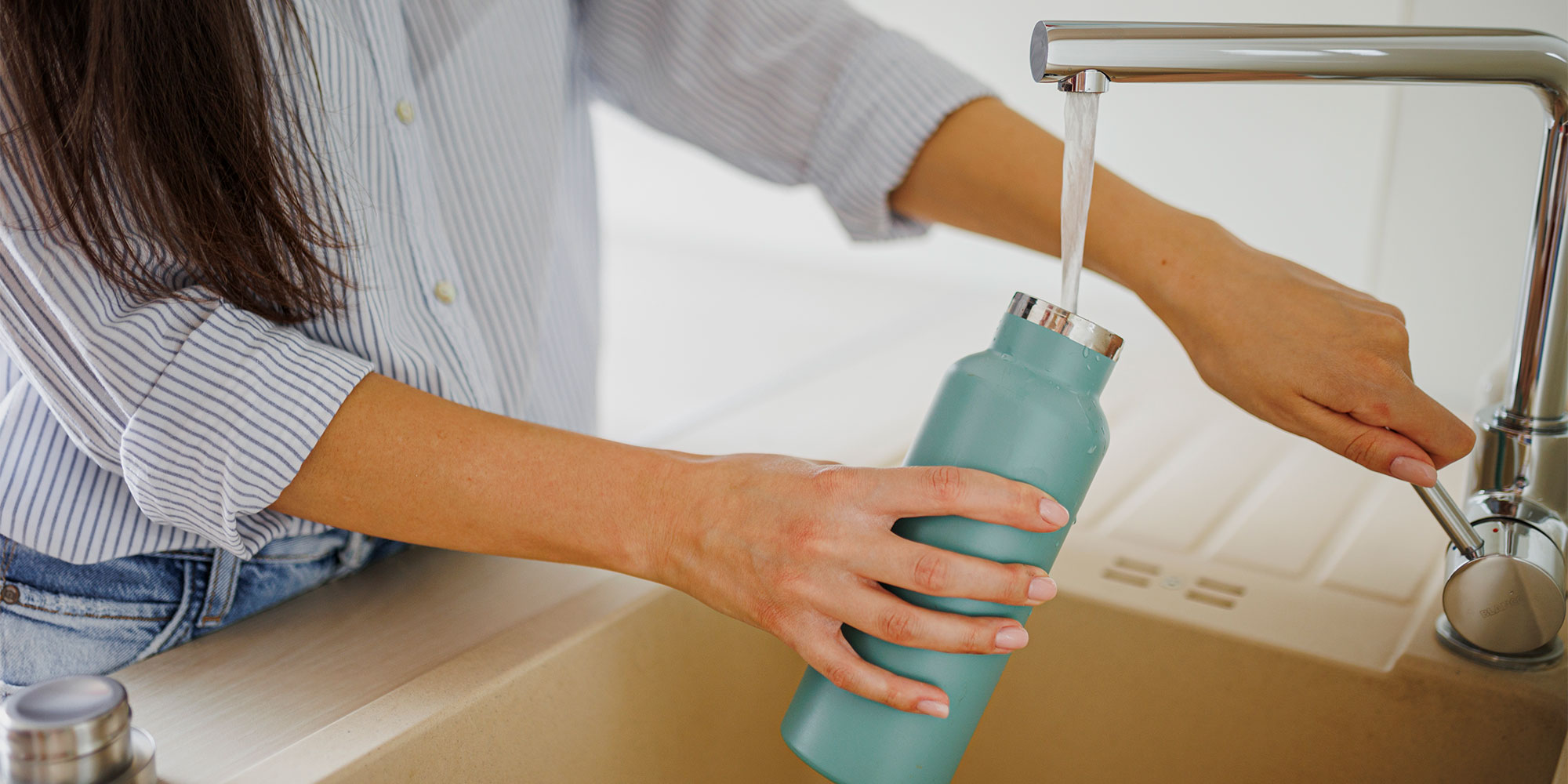
Single-use plastic bottles contribute massively to waste and pollution - the Greater London Authority says that 7.7bn plastic bottles are bought across the UK every year, contributing substantially to single-use plastic waste.
Although reusable bottles are rarely fully plastic-free themselves, using one to repeatedly fill up is better than using endless disposable plastic bottles.
Some reusable water bottles - such as those made of stainless steel - also tend to provide better temperature insulation than plastic, keeping your cold drinks colder for longer.
Popular reusable water bottles to consider
- Stanley AeroLight IceFlow Stainless Steel Drink Bottle* - SQUIRREL_TEXT_50015863
- Chilly's Series 2 Water Bottle (500ml)* - SQUIRREL_TEXT_50022654
- Elephant Box Single Wall Water Bottle (500ml) - Available from Elephant Box (£16)
* Contains plastic elements.
In the UK, tap water is regulated rigorously, undergoes frequent testing and is significantly cheaper and has a lower impact than bottled water. Disposable water bottles often up in landfill or the ocean, and the production of bottled water is energy and transport-intensive. The CCW estimates that drinking two litres of tap water a day costs you less than £2.50 per year, while bottled water is 300 to 1,000 times more expensive. If you don't like the taste of tap water, consider one of the best water filter jugs from our tests.
For taking drinks on the go, see our reviews of the best water bottles
5. Swap disposable for reusable coffee cups
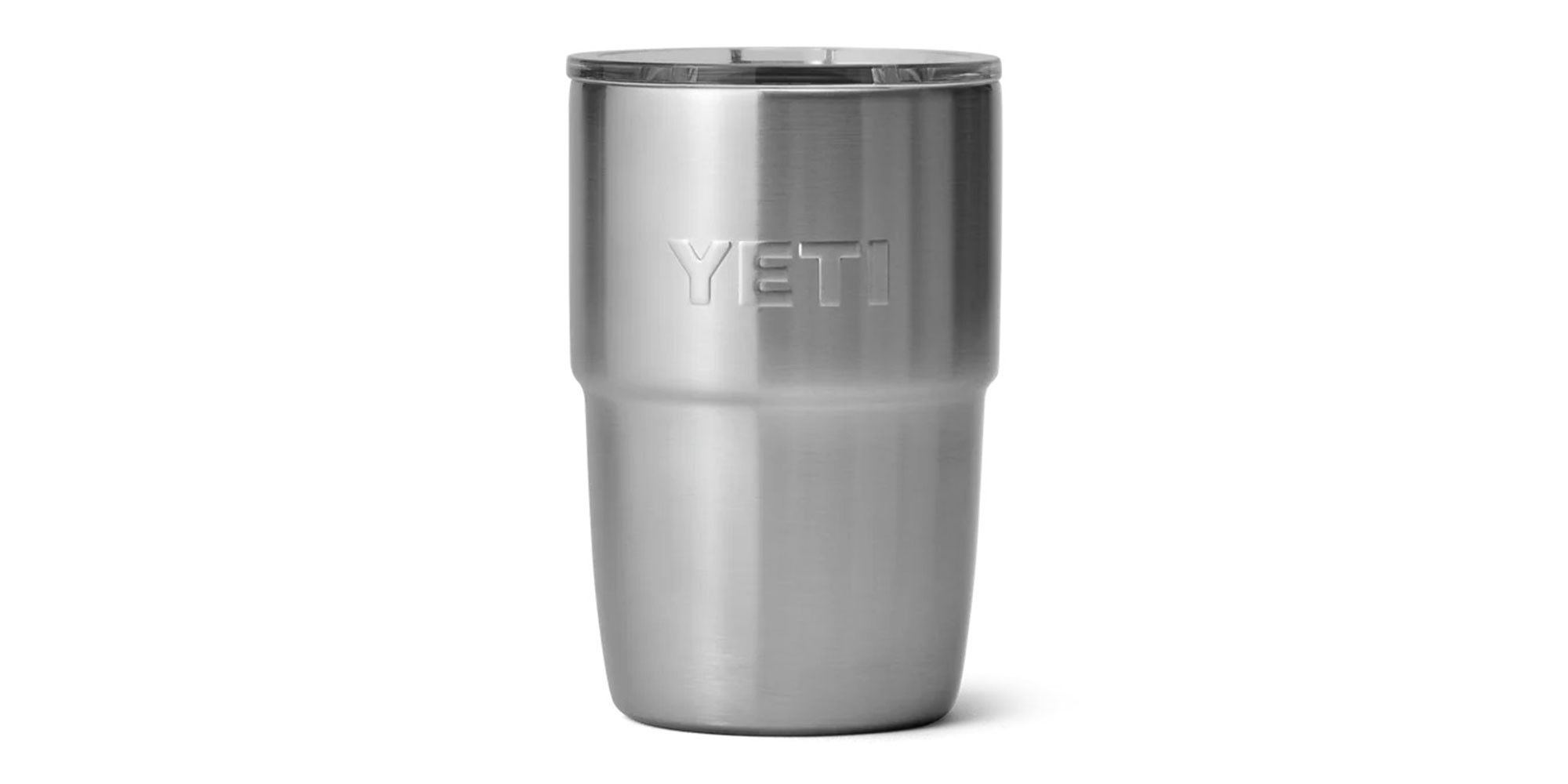
Disposable 'paper' coffee cups seem harmless at first, but many of them are lined with a thin layer of plastic, making them a source of microplastics exposure and hard to recycle.
A reusable cup made of stainless steel, glass or bamboo composite drastically cuts single-use waste. Many are designed to be durable, effective at insulating and easy to carry.
But, like many of these plastic swaps, you can't always guarantee that an 'eco-friendly' cup will be entirely plastic-free - many still include plastic lids or seals.
Still, they're a better option than getting a disposable cup every time you buy a coffee. Plus some cafés and coffee chains will even give you a benefit or small discount if you bring in a reusable cup to take away your coffee away - such as Pret a Manger (50p discount), Greggs (25p off), Starbucks (25p off) and Caffè Nero (double loyalty stamps).
Popular reusable coffee cups to consider
- Ocean Bottle Brew Flask* - SQUIRREL_TEXT_50018106
- Bru Reusable Coffee Cup* - Available from Bru (£17.99)
- Klean Kanteen TKPro Bottle Brushed Steel - SQUIRREL_TEXT_50022650
* Contains plastic elements.
We've found the best travel mugs and reusable coffee cups to keep your drinks warm for longer
6. Swap synthetic for natural fibres
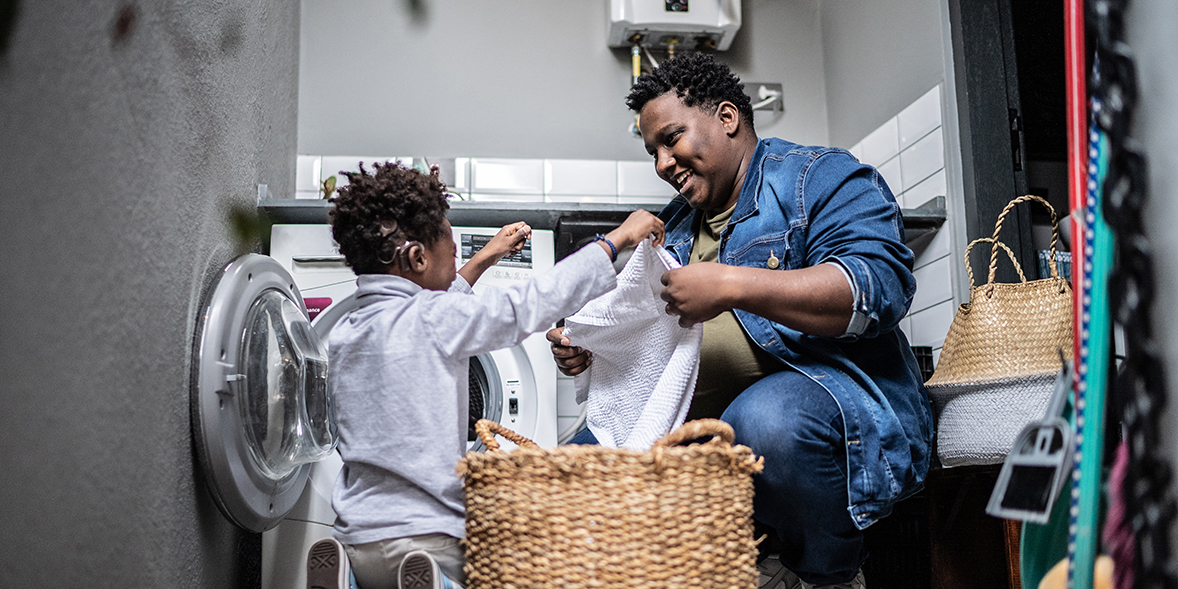
Synthetic textiles (such as polyester, nylon and acrylic) shed microplastic fibres during washing, wear and production. One study published by the US National Library of Medicine showed that the washing process is a major pathway for microplastic fibre release into natural waterways. Over decades, it’s estimated that millions of metric tons of synthetic microfibers have been released globally from washing textiles.
Natural fibres such as cotton, wool, hemp, linen or silk don't contain synthetic microplastics and biodegrade naturally over time. Because of this, you may need to take more care washing them - we explain how in our guide: How to wash clothes.
It's important to note that natural fibres may be treated with additives that can shed, so you should ventilate your home regularly and dry clothes outside where possible.
Don't have space outdoors? Find out the best and cheapest way to dry clothes indoors
7. Swap tea bags for loose leaf tea
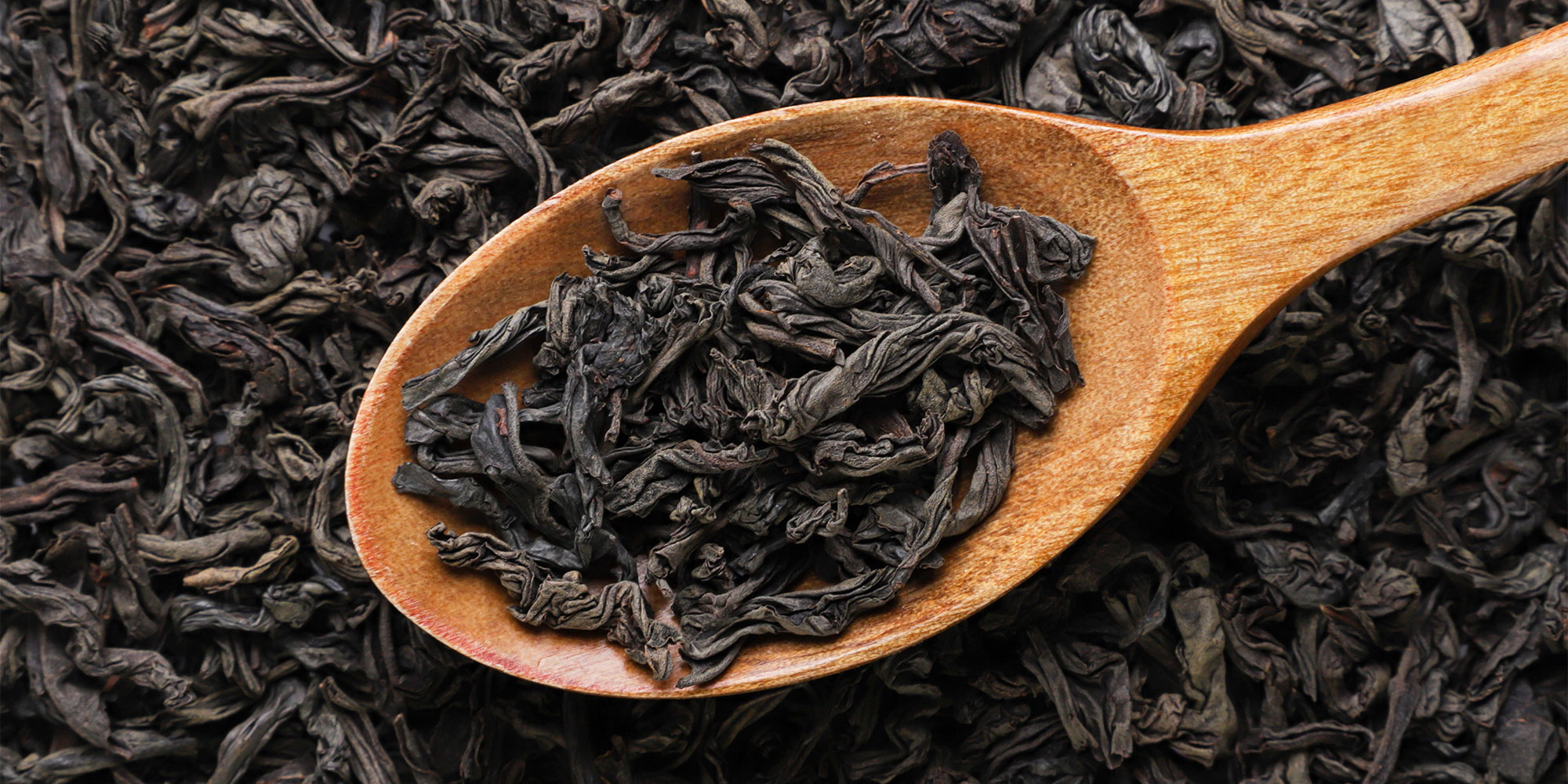
Loose-leaf tea tends to be much more sustainable than many conventional tea bags, especially those containing plastic or synthetic polymers.
A study published by the US National Library of Medicine found that steeping a plastic-based teabag at about 95°C releases approximately 11.6bn microplastic particles and 3.1bn nanoplastic particles into a single cup.
Moreover, many of us compost our used tea bags without realising they may contain plastic. Those tiny fibres don’t break down completely and can build up in the soil, posing a threat to insects and other wildlife.
Most tea bags now use a bio-based plastic known as polylactic acid (PLA) that will biodegrade under the right conditions, although this doesn't include your home compost heap.
You could look for tea bags advertised as 'plastic-free', though these will sometimes include adhesives.
Loose-leaf tea, especially when brewed using metal, ceramic or glass infusers, avoids much of this plastic exposure. Some sources say it even tastes better as it uses larger, whole leaves rather than ground-up tea found in tea bags. You can often find loose-leaf versions of your favourite brands.
For more information, see our guide: Is there plastic in your tea?
Popular loose leaf teas to consider
- PG Tips Loose Black Tea (250g) - SQUIRREL_TEXT_50022652
- Yorkshire Tea Loose Leaf Tea (250g) - SQUIRREL_TEXT_50022653
- Twinings Loose Leaf Earl Grey Tea (125g) - Available from Sainsburys (£2.50) and Waitrose (£2.60)
Gasping for a brew? See the best kettles from our tests

